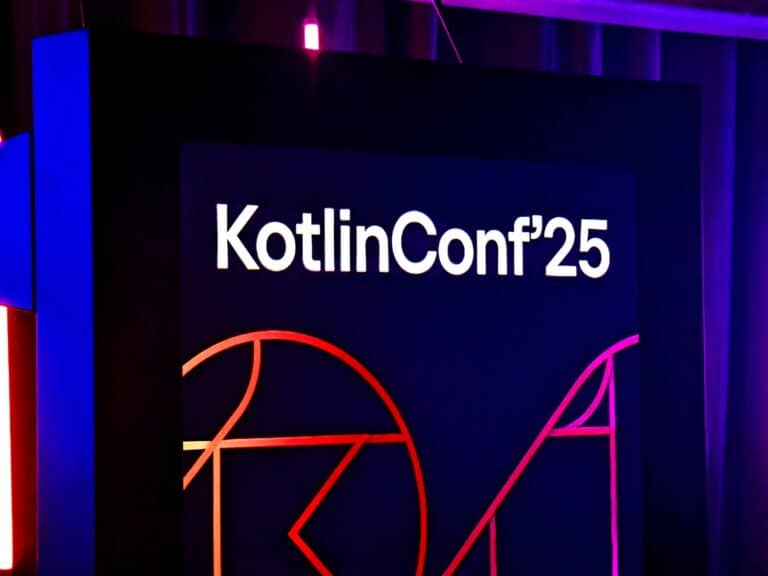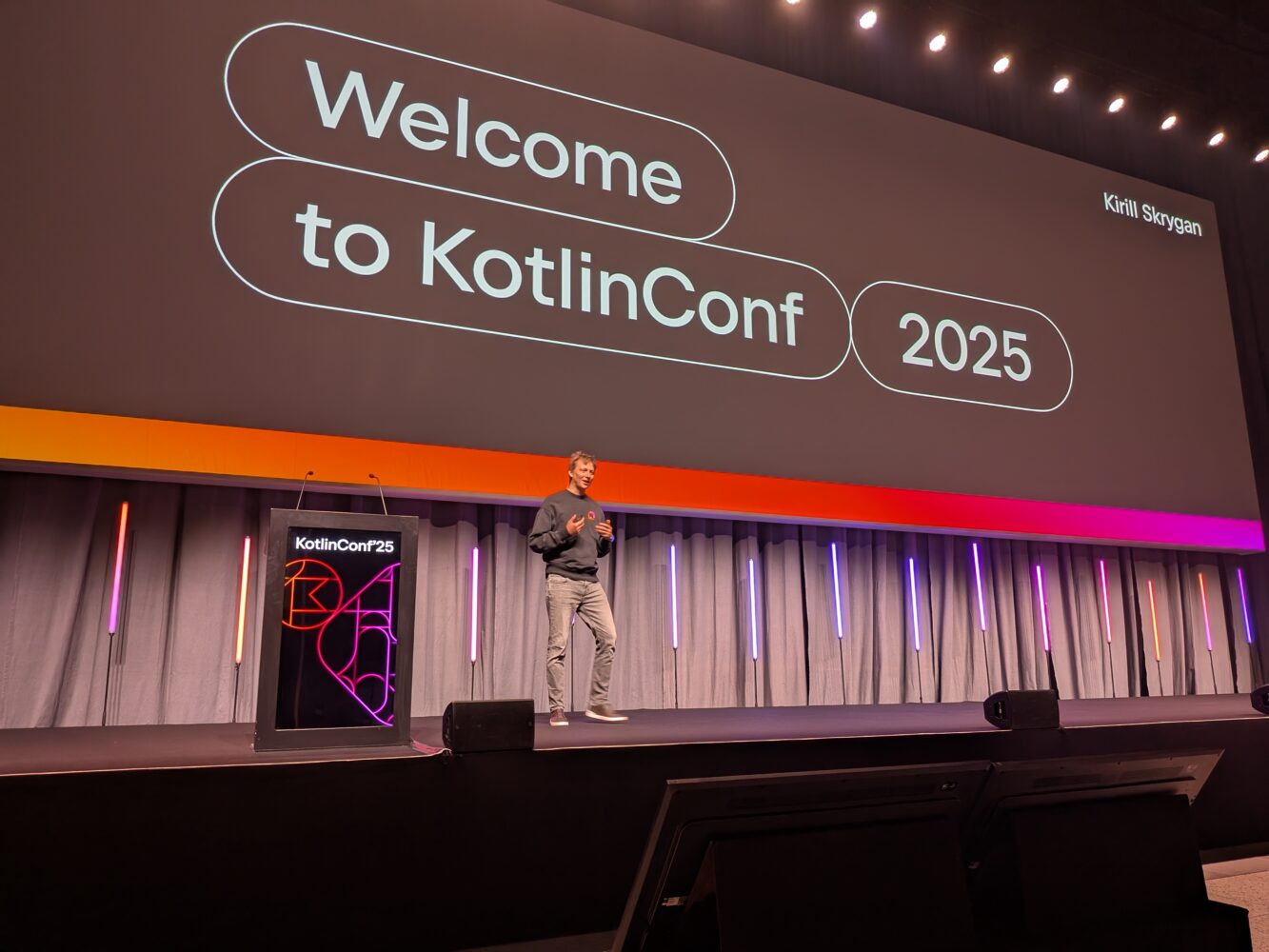During KotlinConf 2025, developer JetBrains has charted the course of the Kotlin programming language. Its further maturation will manifest in a multitude of ways, from improved security and speed to a mature AI approach within on-premise environments.
Some announcements taking centre stage at KotlinConf in Copenhagen aren’t new, but have now been put in front of an audience for the first time. One of these is the switch to the new K2 compiler as the default, resulting in 40 percent shorter build and CI times.
Tip: JetBrains introduces stable version of Kotlin Multiplatform
Fewer risks, more openness
A release candidate (RC) of Kotlin 2.2 is already available. Security is central to the upcoming versions (2.2, 2.3 and 2.4) that’s coming next. For example, guard conditions have been built in, which are checks that make switch statements resistant to manipulation. The compiler will also warn if a function output is ignored thanks to must-use return values. In addition, error messages are more informative to help speed up bug fixes across the board.
The Koog framework for building AI agents is also being open sourced. This will make for a useful pairing with the previously announced open sourcing of Mellum, JetBrains’ Kotlin-focused LLM. This will enable organizations to run their AI-driven development on-premises. This is a big step; competing tools are generally only available online.
For anyone coding in sensitive environments, AI assistance has been a siren song emanating from APIs and online platforms. This form of “Shadow AI” is caused by this erstwhile lack of offline options for AI coding help. That should now be a thing of the past for Kotlin development work.
Multiplatform consolidation
To change gears a bit: Kotlin Multiplatform has been on the path to a unified Android and iOS path for some time. Compose Multiplatform for iOS has been unveiled in a stable form for several weeks, allowing apps for Apple devices to feel native in terms of smoothness and operations. With Compose Hot Reload, developers can also see the real-world impact of their UI changes immediately.
Kotlin for Wasm is still in an early stage, but “improving rapidly,” according to JetBrains. Kotlin/Wasm and Compose Multiplatform are expected to reach beta later this year.
In the longer term, Kotlin is also expanding to more development environments. The Kotlin Language Server Protocol (LSP) and a new Kotlin extension for Visual Studio Code are the beginning of this and at an early stage, but show where the programming language is headed. An alpha release will follow later in 2025; for now, there’s a pre-alpha version.
Partnership with Spring
Another important achievement is the new collaboration with the team behind Spring. This framework is focused on Java and server-side development, but will now become a priority for Kotlin as well.
JetBrains is also working hard on Kotlin for the backend. Ktor, intended for writing code for servers and clients in Kotlin, will be up to three times faster when it comes to I/O performance. Support for more configurations, new features such as server-sent events, and support for WebAssembly should maintain Ktor’s rapid growth.
Read also: How the Kotlin programming language conquered Android

